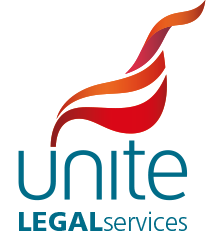A bogus self-employment case supported by Britain’s largest union, Unite, which could set a legally binding precedent for tribunals across the UK, gets underway today (Tuesday 5 December) at the employment appeal tribunal in London.
The case against the recruitment agency, On-Site Recruitment Solutions Limited, for the unlawful deduction of wages, employer’s national insurance and non-payment of holiday pay, will be the first time an employment appeal tribunal has considered a bogus self-employment appeal involving the use of a payroll company.
Brought by pipefitter, Russ Blakely, with the support of Unite’s strategic case unit, the case could deal a major legal blow to employers and employment agencies using ‘umbrella’ companies and ‘sham’ payroll firms to cheat workers out of their rights and hard earned wages.
Commenting, Unite assistant general secretary for legal services, Howard Beckett, said: “The importance of today’s hearing cannot be underestimated. This is the first time that the appeal courts have considered a case involving bogus self-employment and the use of a ‘sham’ payroll company to strip workers of their rights.
“We are increasingly seeing agencies and employers adopting these fictitious models in an underhand attempt to avoid their responsibilities and charge employer’s tax and national insurance liabilities to workers undertaking insecure and often temporary work.
“This is precisely the type of sham arrangement that denies people of their rights at work and robs them of their holiday pay that Unite’s strategic case unit has been set up to tackle.
“The employment appeal tribunal’s decision will set an eagerly awaited, binding legal precedent that tribunals across the country will be required to follow. If successful, we expect it to send shockwaves through the construction industry and other sectors that adopt exploitative payroll and ‘umbrella’ company models.
“This is also the first bogus self-employment case to be considered by the appeal court since the European Court of Justice’s decision last week in King v Sash Windows confirmed that employers’ cannot escape paying workers’ holiday pay by using sham self-employed arrangements.
“Bad employers should beware that Unite members have the unwavering support of the UK’s largest trade union.”
From 19 January 2016 until 20 May 2016, Mr Blakely was employed on the NHS-funded Broadmoor hospital redevelopment project in Berkshire by On-Site. Confirming he was to undertake work on the project, On-Site texted Mr Blakely and informed him that he needed to contact an umbrella/payroll company, Heritage Solutions City Limited, for payment.
Mr Blakely was paid weekly and was deducted a weekly fee of £18 by Heritage from his pay (described as management company margin). He was also charged the employer’s national insurance contributions, labelled on his payslip as ‘HMRC Payment NIERS’. In total, he was charged £324 in management fees and £725.59 in employer NICs.
In March 2016, Heritage Solutions asked Mr Blakely to sign ‘a contract for services’ seeking to deny him the most basic worker rights, including auto-enrolment pension, holiday pay and sick pay.
The contract also attempted to authorise deductions for employer’s class 1 national insurance from Mr Blakely’ pay and included a menacing ‘indemnity’ clause, aimed at stopping him from pursuing any legal claims and gagging him from raising complaints with HMRC. He was told that if he did not sign the agreement, his pay would be stopped. Despite this, Mr Blakely refused to sign.
He continued to work until 20 May 2016, when he took holiday and was told that he was not needed to return.
The case was initially heard at the Reading employment tribunal, which dismissed the claim believing he was not a worker having failed to properly understand the evidence provided. Unite lodged an appeal with the employment appeal tribunal on 3 March 2017 based on the tribunal wrongly applying law and reaching a perverse conclusion.









